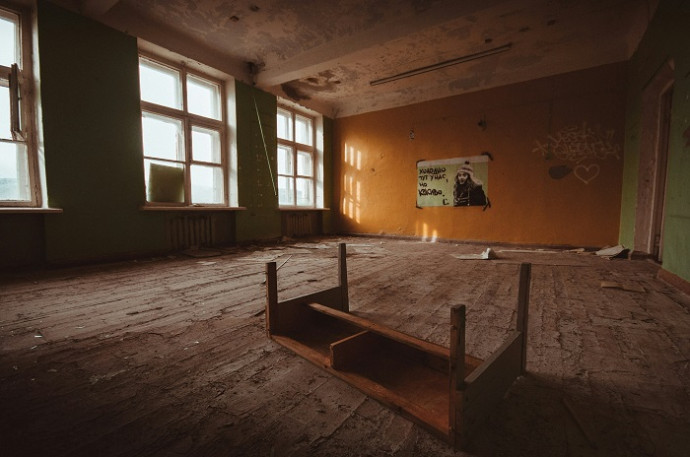Tomorrow
The notion of the future is not only at the core of the Biennial's programming but also the reason for its celebration: it proposes a meeting that will be fruitful in considerations projected forward in time. It is clear that the proposed content starts from the observation and interpretation of present and past facts and phenomena, but this analysis demonstrates that the world is unstable, full of vulnerabilities, and that most of the structures of all kinds that have prevailed are pushed toward change and may not serve as currently defined to address what is to come. The subtitle The day after it all accompanying and focusing this edition of the event makes this conviction evident.
However, once this general framework is accepted, there are several activities that, more directly than others, address explicitly prospective questions and look squarely at more or less immediate challenges. Challenges like education, an area always at the forefront of numerous debates and disagreements. What should be its role and that of its professionals in today’s and tomorrow’s world seems an unsolvable question, but surely sociologist Aina Tarabini, philosopher Joan-Carles Mèlich, and teacher and center director Lia Segarra will bring valuable insights to the round table Education today.
Another essential good is water, and now that its scarcity has turned it into a matter of urgent relevance and has highlighted how its management decisively affects territory and economy, it is interesting to dedicate reflective spaces to it. In Water and Democracy: Governance of a common good: limitations and challenges, we will have the opportunity to hear from Katie Meehan, an international expert in water policy, in debate with environmentalist Violeta Cabello.
Also very current are reflections on what to do in the face of hate speech and the advance of fascism. Is the verb defend what we need to conjugate for a constructive and operational future in democratic terms? This is the question posed in a session with philosopher Amador Fernández Savater and researcher Claudia Delso Carreira titled Should we defend democracy? Continuing with media topics, the national question seems to never lose relevance, despite the variable intensity of its public resonance. In Catalonia-Spain: now what? journalist and political scientist Núria Orriols will moderate a debate with political theory professor Marc Sanjaume and constitutional law professor Javier Pérez Royo to discuss possible future scenarios.
Once again, without leaving behind hot topics in public and media debate, the impact of mass tourism on access to housing and its effects on territory could not be excluded from the issues to address. In Living in Barcelona today: tourism, housing, and gentrification, formulas will be explored, and considerations will be put on the table from architecture, urbanism, and anthropology thanks to the contributions of Núria Moliner, Erik Harley, and Jaime Palomera, respectively. Continuing with urban transformation processes—both physical and immaterial—Joan Subirats, a political science professor, and Alessandro Balducci, a professor of urban policies, will discuss the increasing social complexity, always ahead of institutional responses, in Cities and Metropolises: urban transformations and new social and cultural dynamics.
If we seek a more philosophical approach to future challenges, we will likely be interested in The apocalyptic Imagination, a conversation with sociologist Christine Hentschel and political scientist Mathias Thaler led by philosopher Daniel Gamper. It will start from the current prevalence of fictions and narratives that flirt with the idea of collapse to assess how this defines us as a society and how we can turn it into a thought that positively drives us toward change. Indeed, a positive vision is what transhumanism proposes, arguing that genetic editing and other scientific-medical advances will improve the human condition. This perspective is tempting but full of questions—technological, but above all ethical—and some of them will be attempted to be answered by Anders Sandberg, a researcher at the Institute for Futures Studies, in Beyond the Human: transhumanism and artificial intelligence.
And in +Biennial...
One of the technological concerns that does not precisely have a downward trend is the power of large corporations in the sector and their ability to control thanks to the data they obtain from citizens. At the IEC Cloister, Martí Domínguez and Llucia Ramis will debate the consequences arising from this reality and will propose challenges and, who knows, solutions in the session How to escape the tyranny of algorithms: ways of conceiving the future based on science and humanities.




